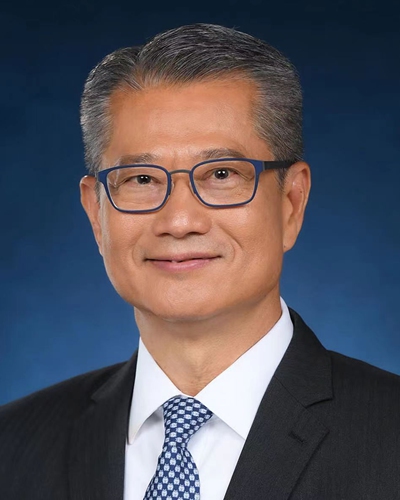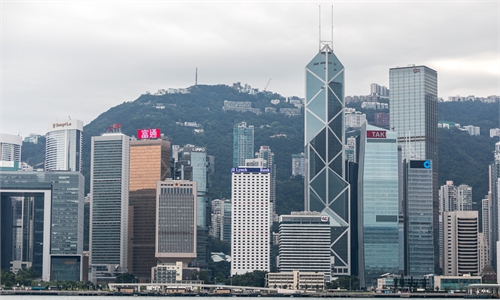Hong Kong mulls more measures for convenient return of US-listed mainland firms: Financial Secretary

HKSAR Financial Secretary Paul Chan Mo-po Photo: Courtesy of Chan's office
As the US' push for "decoupling" with China brings about monumental political risks for US-listed Chinese mainland firms, Hong Kong hopes to adjust some stock market rules to make it more convenient for the return of these companies, Hong Kong Special Administrative Region (HKSAR) Financial Secretary, Paul Chan Mo-po, said in a recent interview with the Global Times.
Chan said that more than 20 US-listed mainland companies are returning to Hong Kong, accounting for over 70 percent of the total capitalization of Chinese mainland firms trading in the US.
From Alibaba's secondary listing in Hong Kong in November 2019 to July 1 this year, 27 Chinese stocks have returned to Hong Kong in different forms. Among them, five were listed after privatization and delisting, six are dual listings and 16 are secondary listings.
Alibaba Group made a fresh announcement on Tuesday that it will upgrade its secondary listing in Hong Kong to primary level under a new exchange procedure.
"From the national level, the US is trying to 'decouple' with China, which brings great political risk to mainland companies listed overseas. Therefore, Hong Kong hopes to adjust some rules of the stock market and welcomes the return of these firms," Chan said.
The Hong Kong Stock Exchange has optimized its listing system several times since 2018, paving the ground for attracting more firms back from overseas markets.
In April 2018, the Hong Kong stock exchange market for the first time allowed biotech companies with no operating income and some new economy companies to be listed in Hong Kong. It also accepted the secondary listing of Chinese stocks.
Although China-US relations were not as tense as now, when the listing system was adjusted in 2018, the Hong Kong stock market needed more vitality from the new economy, Chan said. "Previously, most of the companies listed in Hong Kong were traditional, and the development of the Hong Kong stock market must attract new economy companies and make the stock market more dynamic."
Since the 2018 reform, the Hong Kong stock market has shifted from a market dominated by the traditional economy to a more diversified capital ecosystem. In 2021 alone, 59 new economy companies were listed in Hong Kong, including 31 companies with weighted voting rights, healthcare and biotech companies.
Mainland companies listed in Hong Kong and the comeback of some overseas listed firms has also become a "golden magnet" for the Hong Kong stock market to attract more foreign capitals.
Chan told the Global Times that in 1997, the total market value of listed companies in Hong Kong was only over 3 trillion Hong Kong dollars ($382.2 billion). Now, it has exceeded 40 trillion Hong Kong dollars (over $5 trillion), an increase of more than 12 times. The number of listed companies has also increased, from more than 600 in 1997, to 2,500.
Among the more than 2,500 listed companies, mainland companies make up about half of them, and the total market value accounts for 70 percent of the total market value of Hong Kong stocks, according to Chan.
With the continuous development of China's economy, international stakeholders will invest more and more in Chinese assets, bonds and stocks, which brings bright development prospects to Hong Kong's financial market, Chan said.


